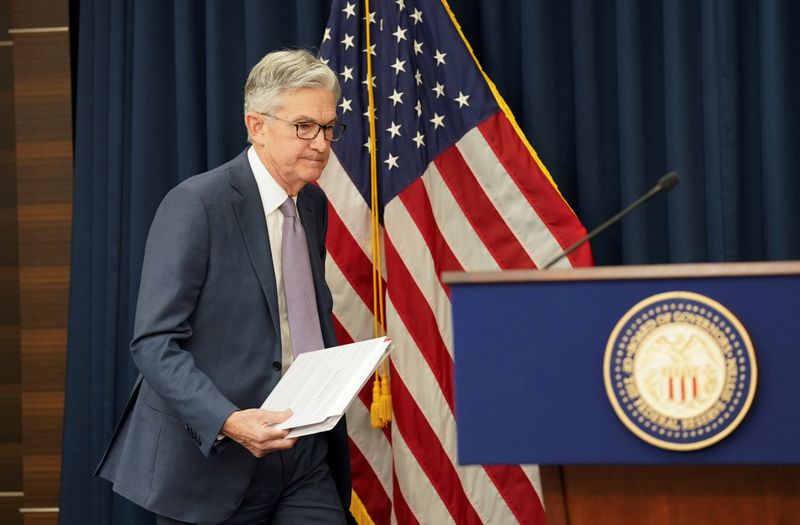By Ann Saphir
(Reuters) - With a heated political debate underway over the Biden administration's $1.9 trillion proposed pandemic relief package, it was entirely predictable that U.S. lawmakers would jump at the chance to ask Federal Reserve Chair Jerome Powell to weigh in.
But in contrast with his repeated calls last year for additional fiscal support and the dire consequences of skipping it, Powell declined to do so on Tuesday during the first of two days of congressional testimony.
"I have consistently not taken a position on this bill," Powell told Republican Senator John Kennedy. "It's not appropriate for the Fed to be playing a role in these fiscal discussions about particular provisions and particular laws...it's not our role."
Kennedy pressed: "If we don't pass the bill, you're cool with that?"
"That would be expressing an opinion. So that's what I'm not doing, is expressing an opinion," Powell answered, a response reminiscent of the kind of cryptic volley offered up by former Fed Chair Alan Greenspan during congressional testimony. "By being either cool or uncool, I would have to be expressing an opinion."
It was unclear if Powell's studied objectivity on the issue reflected any change of heart on the issue. The economy, he said several times, is a "long way" from health and needs further support.
"I would interpret it as a simple reaction to the fact that a big package is on the way," says Julia Coronado, president of analysis firm Macropolicy Perspectives.
Indeed, she said, Powell's forecast Tuesday that the U.S. economy may grow in the range of 6% this year "100%" means he is already penciling in the additional fiscal aid.
The U.S. House of Representatives Budget Committee on Monday approved the relief package, advancing it toward a full House vote in coming days and, eventually, toward consideration in the Senate, where Democrats hold a slim majority.
Last year, as Congress and the Trump administration repeatedly failed to move forward on fiscal relief, Powell struck a decidedly different tone.
In October, for instance, Powell told a group of business economists that "the recovery will be stronger and move faster if monetary policy and fiscal policy continue to work side by side to provide support to the economy until it is clearly out of the woods."
And in December, as lawmakers appeared close to what ultimately was a $892 billion aid package, Powell went further. "The case for fiscal policy right now is, is very, very strong," he said in a news conference. While the details are "up to Congress," he said, the need for households and businesses to have fiscal support is "widely understood."
"I certainly would welcome the work that Congress is doing right now," he said then.
On Tuesday, however, Powell declined more than once to comment on the current bill.
But he did make it clear that if the government does choose to deliver a "burst" of fiscal support, he would not expect to see a surge in unwanted inflation.

The second half of the year is likely to be "very good" and stronger consumer spending could push up prices, he said - but he would expect that effect to be neither large nor persistent.